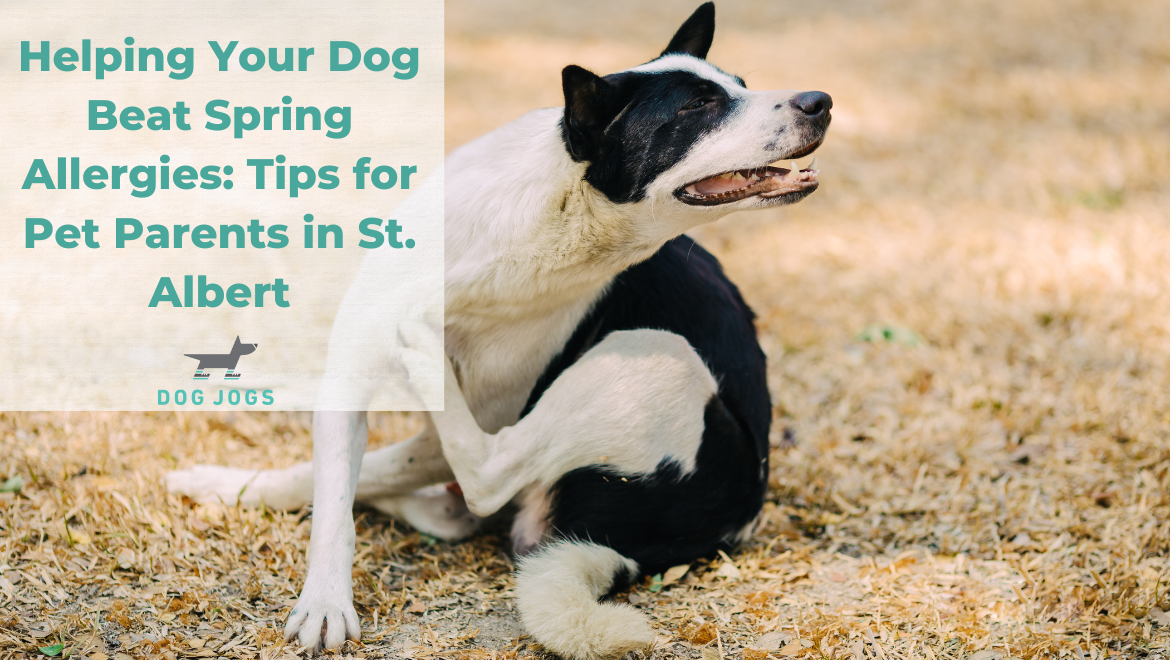Helping Your Dog Beat Spring Allergies: Tips for Pet Parents in St. Albert

Spring is a time of renewal and rejuvenation, but for many dogs in St. Albert, Alberta it can also mean the onset of seasonal allergies. As a pet parent, it’s important to be aware of the symptoms of allergies in dogs and take steps to help your furry friend feel more comfortable. In this blog post, we’ll discuss three talking points to help you understand and treat your dog’s spring allergies.
- Common Symptoms of Spring Allergies in Dogs
Dogs can experience a range of allergy symptoms, just like humans. Some common signs of spring allergies in dogs include:
- Itchy, red, or watery eyes
- Sneezing, coughing, or wheezing
- Runny nose
- Itchy or irritated skin
- Excessive scratching or licking
- Ear infections or irritation
If you notice your dog experiencing any of these symptoms, it’s essential to visit your veterinarian to rule out any other underlying health issues.
- Remedies for Spring Allergies in Dogs
There are several remedies you can try to help alleviate your dog’s allergy symptoms. Here are three options to consider:
- Antihistamines: Just like in humans, antihistamines can help reduce your dog’s allergic reactions. There are several over-the-counter antihistamines available for dogs, but it’s important to talk to your veterinarian before giving your pet any medication.
- Supplements: Some supplements, such as omega-3 fatty acids or probiotics, may help boost your dog’s immune system and reduce inflammation, making them less prone to allergic reactions.
- Allergy Shots: In some cases, your veterinarian may recommend allergy shots to help desensitize your dog to specific allergens over time. This treatment is typically reserved for severe allergies that cannot be managed with other methods.
- Preventing Spring Allergies in Dogs
Prevention is always the best strategy when it comes to allergies. Here are some steps you can take to help prevent spring allergies in your dog:
- Keep your dog’s living space clean: Vacuum regularly, wash your dog’s bedding frequently, and keep your home free of dust and allergens as much as possible.
- Keep your dog away from allergens: Try to limit your dog’s exposure to potential allergens, such as pollen, by avoiding high-pollen areas and keeping your dog indoors during peak allergy season.
- Regular grooming: Regular baths and grooming can help remove allergens from your dog’s coat, reducing the risk of irritation.
In conclusion, as a pet parent in St. Albert, it’s essential to be aware of the symptoms of spring allergies in dogs and take steps to help alleviate your dog’s discomfort. By working with your veterinarian and implementing preventative measures, you can help your furry friend enjoy the season without suffering from allergies.